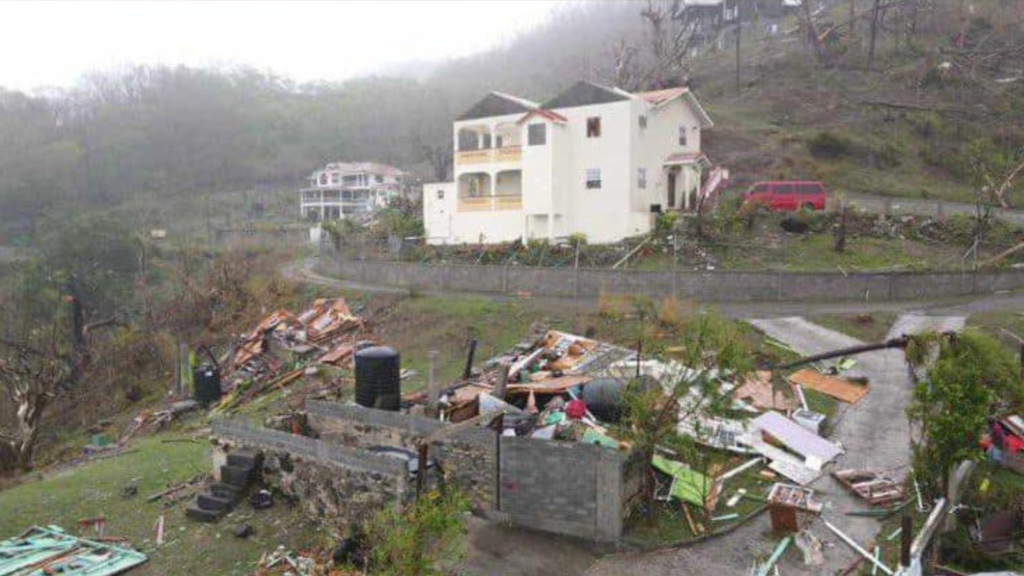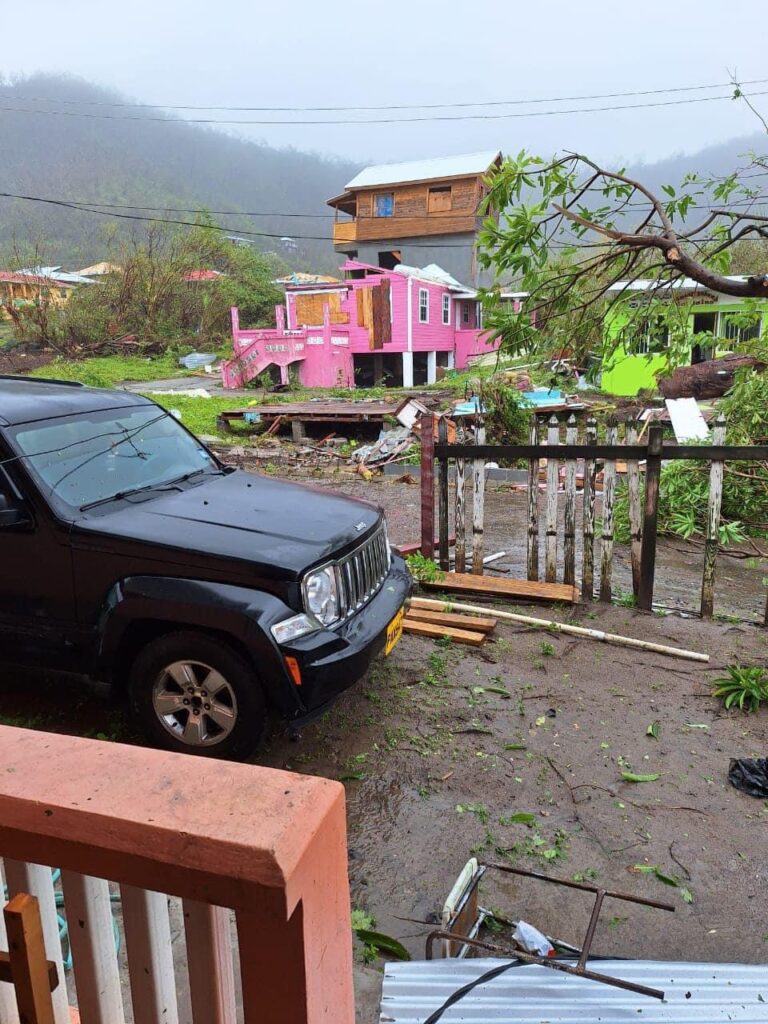—
Fundraising efforts to assist the victims of Hurricane Beryl get back on their feet have begun. You can help by clicking on this link.
—
Hurricane Beryl is shredding through the Caribbean, taking lives and wreaking havoc in the vulnerable states.
Beryl intensified into a Category 4 hurricane on Sunday after forming in June – the earliest major hurricane ever seen in the Atlantic Ocean. Then it made history again on Monday when it intensified to a Category 5 storm. While Beryl is the earliest Category 5 hurricane on record, it narrowly missed being the earliest major hurricane ever recorded in the Atlantic. Only two other major hurricanes, with wind speeds of 111 mph or greater, occurred earlier in the season: Alma on June 8, 1966, and Audrey on June 27, 1957.

Hurricane Beryl hit Jamaica with life-threatening rain and 145 mph winds this afternoon (Wednesday 3rd July 2024) after charting a deadly path through the eastern Caribbean. High winds from the Category 4 storm had already knocked down power lines in Portland, the Jamaica Observer reported.
Officials declared Jamaica a disaster area and imposed a curfew for Wednesday.

The hurricane made landfall on Carriacou Island, Grenada, on Monday, bringing heavy rain, life-threatening winds, and flooding as it moved west across the Caribbean. It has been reported that Beryl has already taken the lives of at least 5 people, and officials said the number of fatalities could increase in the coming days. The storm is the strongest hurricane ever to pass through the Windward Islands, which include Grenada, Saint Lucia and St. Vincent and the Grenadines.
This year’s hurricane season is expected to be exceptionally busy, according to the National Oceanic and Atmospheric Administration. The agency’s May outlook predicted eight to 13 hurricanes, forecasting an “extraordinary” season. Unusually warm waters in the Atlantic have fueled Hurricane Beryl, making it only the third major hurricane—classified as Category 3 or higher—ever recorded in the Atlantic basin in June.
Ambassador Fatumanava Dr. Pa’olelei Luteru, Chair of the Alliance of Small Island States (AOSIS), expressed deep concern over the destruction caused by Hurricane Beryl. Luteru highlighted the long-standing warnings from small island developing states (SIDS) about worsening climate impacts and the urgent need for ambitious climate action from larger nations. The increased frequency and intensity of storms, driven by warmer sea temperatures, are putting SIDS at greater risk.
Luteru called for COP29 to be a transformative moment, demanding a 45% reduction in emissions by 2030, net-zero emissions by 2050, and a new climate finance goal suitable for SIDS. He emphasised the need for developed countries to provide efficient and accessible climate finance to help SIDS recover and build resilience, stressing that the world must stand with SIDS now to avoid further collective loss.
Prime Minister Dickon Mitchell of Grenada described catastrophic damage in Carriacou and Union Island following Hurricane Beryl. Carriacou experienced near-total destruction, with almost all buildings damaged or destroyed, the electrical and communications infrastructure severely impacted, and vegetation stripped away. Mitchell likened the scenes to “Armageddon”, emphasising the unprecedented scale of devastation. Union Island also suffered significantly, with around 90% of homes severely damaged or destroyed.
Ralph Gonsalves, Prime Minister of Saint Vincent and the Grenadines, expressed concerns over accessing international funds for rebuilding and urged wealthier nations to fulfil their climate commitments. He emphasised the need for tangible support to small island developing states and other vulnerable countries, urging major greenhouse gas emitters to translate promises into financial assistance.
The Caribbean Community Climate Change Centre (CCCCC) stands in solidarity with Caribbean citizens and CARICOM countries affected by Hurricane Beryl. Dr. Colin Young, Executive Director, stated that Hurricane Beryl has once again underscored the urgent need for robust climate action and resilience-building efforts, as well as increased support from the developed world.
He said, “The impacts from Beryl lay bare the climate injustice happening in the Caribbean and other small island developing states.”
Hurricane Beryl, a storm of historic proportions, devastated the Caribbean with unprecedented force. Forming unusually early in the Atlantic season, Beryl rapidly intensified to become the strongest hurricane ever recorded passing through the Windward Islands.
Small Islands Developing States (SIDS) like Jamaica, Grenada and Saint Vincent and the Grenadines bore the brunt of its catastrophic impact. Leaders and climate experts, alarmed by Beryl’s strength fueled by warm Atlantic waters, urgently called for increased climate action and substantial financial aid for vulnerable small island nations.